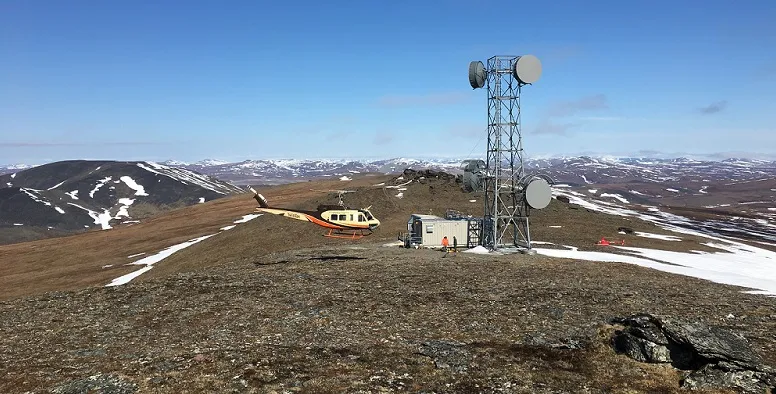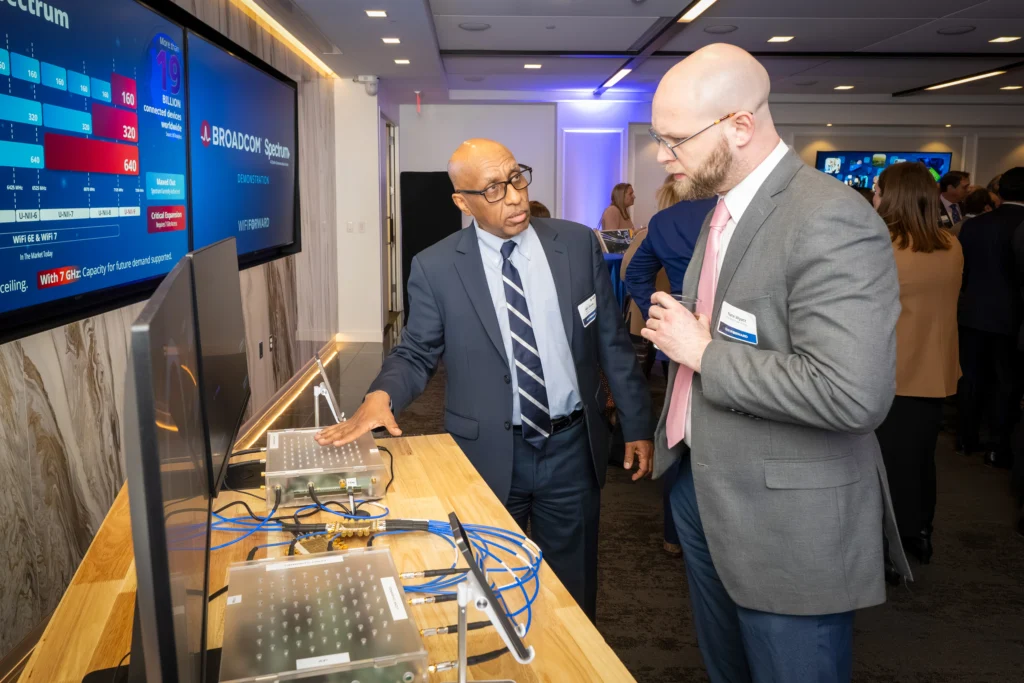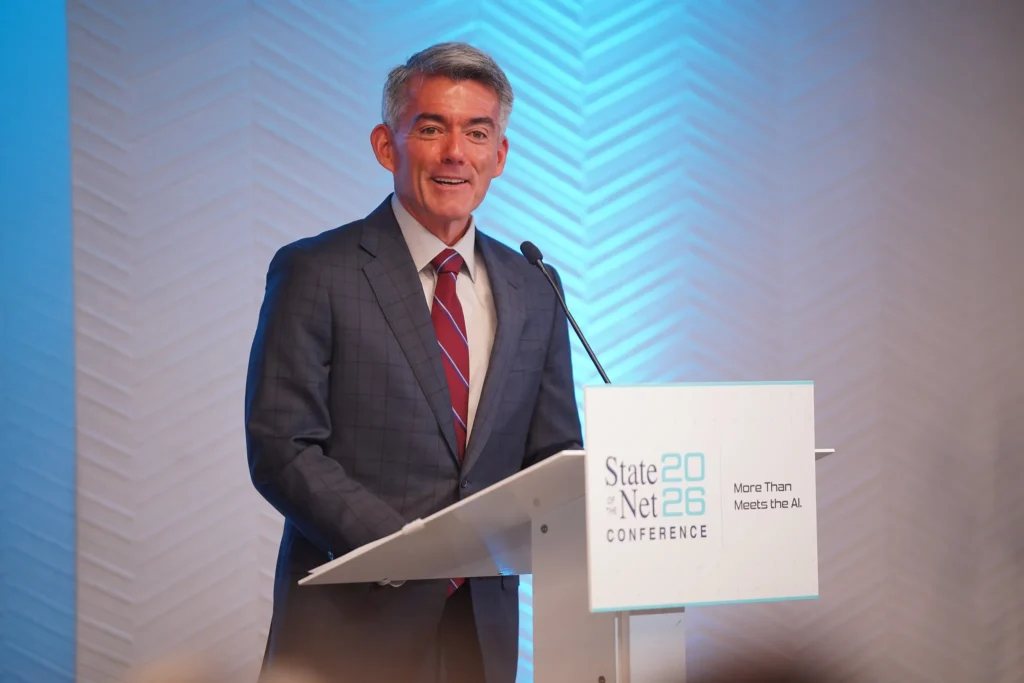NCTA enters its 11th week of tracking network performance nationwide during the COVID-19 pandemic, and broadband networks continue to provide the vital connections that millions of Americans need to learn and work from home. From large cities to rural villages, in many cases fast and robust internet has allowed for businesses to proceed remotely and for distance learning to take place. But in some areas of the country, just keeping the internet running is a huge undertaking under normal circumstances. Tack on a global health crisis, and the obstacles to establishing and maintaining connectivity are compounded, and it takes significant planning to surmount those roadblocks.
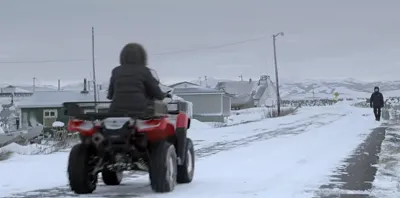 Last month, NCTA profiled a GCI technician in Anchorage, Alaska, a city that operates similarly to many urban areas in the U.S. The Alaskan ISP, however, also serves a rural region in the state which remains very isolated from the rest of the country—so much so, that many of these communities are only accessible by air, boat, or snow mobile depending on the time of year. The provider’s TERRA network–a fiber hybrid network—serves approximately 240 remote communities ranging in population sizes anywhere from 10 to 10,000 people.
Last month, NCTA profiled a GCI technician in Anchorage, Alaska, a city that operates similarly to many urban areas in the U.S. The Alaskan ISP, however, also serves a rural region in the state which remains very isolated from the rest of the country—so much so, that many of these communities are only accessible by air, boat, or snow mobile depending on the time of year. The provider’s TERRA network–a fiber hybrid network—serves approximately 240 remote communities ranging in population sizes anywhere from 10 to 10,000 people.
“If there was a breakout of the virus in one of these communities, the healthcare infrastructure is very limited to be able to treat multiple cases,” explained Jenifer Nelsen, GCI rural relations manager.

While many of the communities have local clinics, getting to a large hospital requires travel to a bigger city. Nelsen also referenced the 1918 pandemic and the toll that it took on rural Alaska, when entire villages and native populations perished because of rapid virus spread. “So they’re really very cautious about keeping their community members safe, and many of [the communities] closed their borders to outside people coming in to limit their exposure to the virus,” added Nelsen. Each community also established its own set of rules and regulations about how to operate during COVID-19.
At the beginning of the pandemic, GCI developed an intrastate policy that dictated travel throughout the state. Even though Alaska allows GCI to travel freely because the ISP provides critical infrastructure, the team still works with each community’s local leadership—whether it’s a tribal council, a city government, or bureau—to make sure they are comfortable to have their team enter and to perform work in the safest way possible for all parties, and to abide by each community’s distinct guidelines.
Fortunately, GCI does have site agents who live in almost every community that the ISP serves. The site agents are there to help with basic issues and maintenance, and to relay information back to GCI’s engineers and technical teams, which helps to speed up the work and reduce travel in and out of the communities. This is especially important amid the new COVID-19 environment.
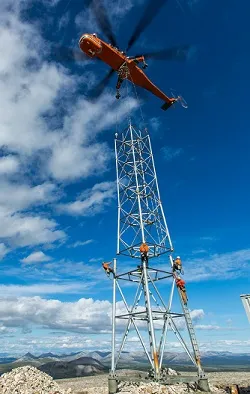 But in cases when a technician from a community with strict border policies needs to travel to another area to perform work, GCI has been hit with a whole new set of challenges. “We have to make sure the technician can get back home and not have to quarantine for 14 days after they deployed for a trip to a neighboring community,” said Nelsen. “Sometimes it’s not always about being able to enter into a community, but about what happens when that technician needs to return home after having been deployed to work on the network somewhere else in the region.”
But in cases when a technician from a community with strict border policies needs to travel to another area to perform work, GCI has been hit with a whole new set of challenges. “We have to make sure the technician can get back home and not have to quarantine for 14 days after they deployed for a trip to a neighboring community,” said Nelsen. “Sometimes it’s not always about being able to enter into a community, but about what happens when that technician needs to return home after having been deployed to work on the network somewhere else in the region.”
Summer is also the time of year when GCI refuels the TERRA network. Though storms and fog often get in the way, the weather and daylight hours are generally much more forgiving than at any other time of year. Because of this, a lot of construction work gets done in the summer. Powering the TERRA network entails bringing fuel from neighboring communities via helicopter, and technicians and tower climbers travel up to the mountaintops to keep the generators running and to ensure that the network is good to go for the rest of the year. There is generally a lot of pressure during the busy summer season to complete these types of projects, explained Nelsen. And now in the present COVID-19 climate, GCI has to seek approval from each community to continue to perform the refueling project, adding to the intricate set of processes that need to take place.
But the tremendous efforts and work have not gone unnoticed by community leaders. “They’re very appreciative, and very thankful,” said Nelsen. “One city manager told me, ‘We can tell you really care about us.’ Because we’re taking extra precautions. We take the time to reach out to each community, to be welcomed in, we don’t just go in and do the work.”

